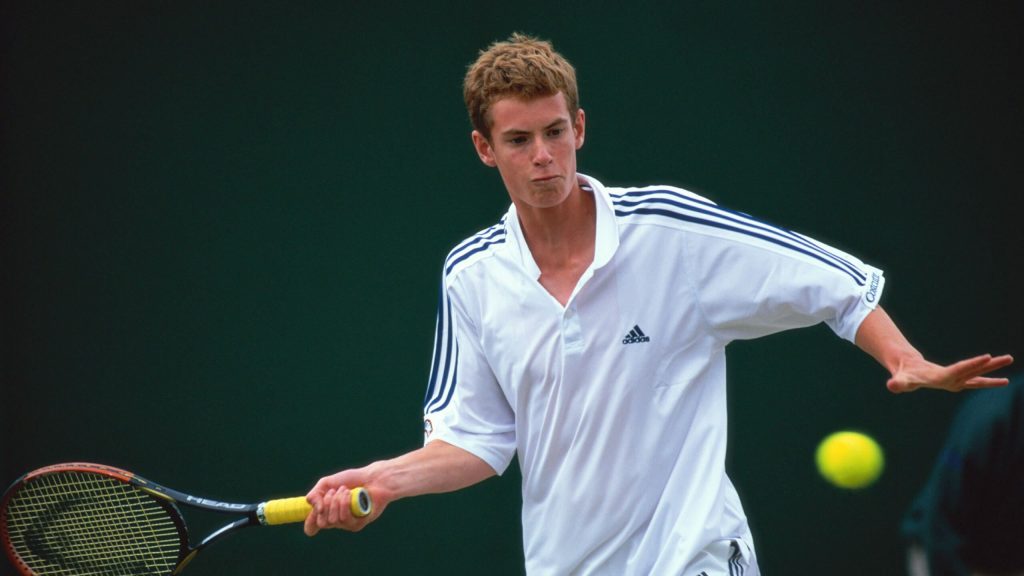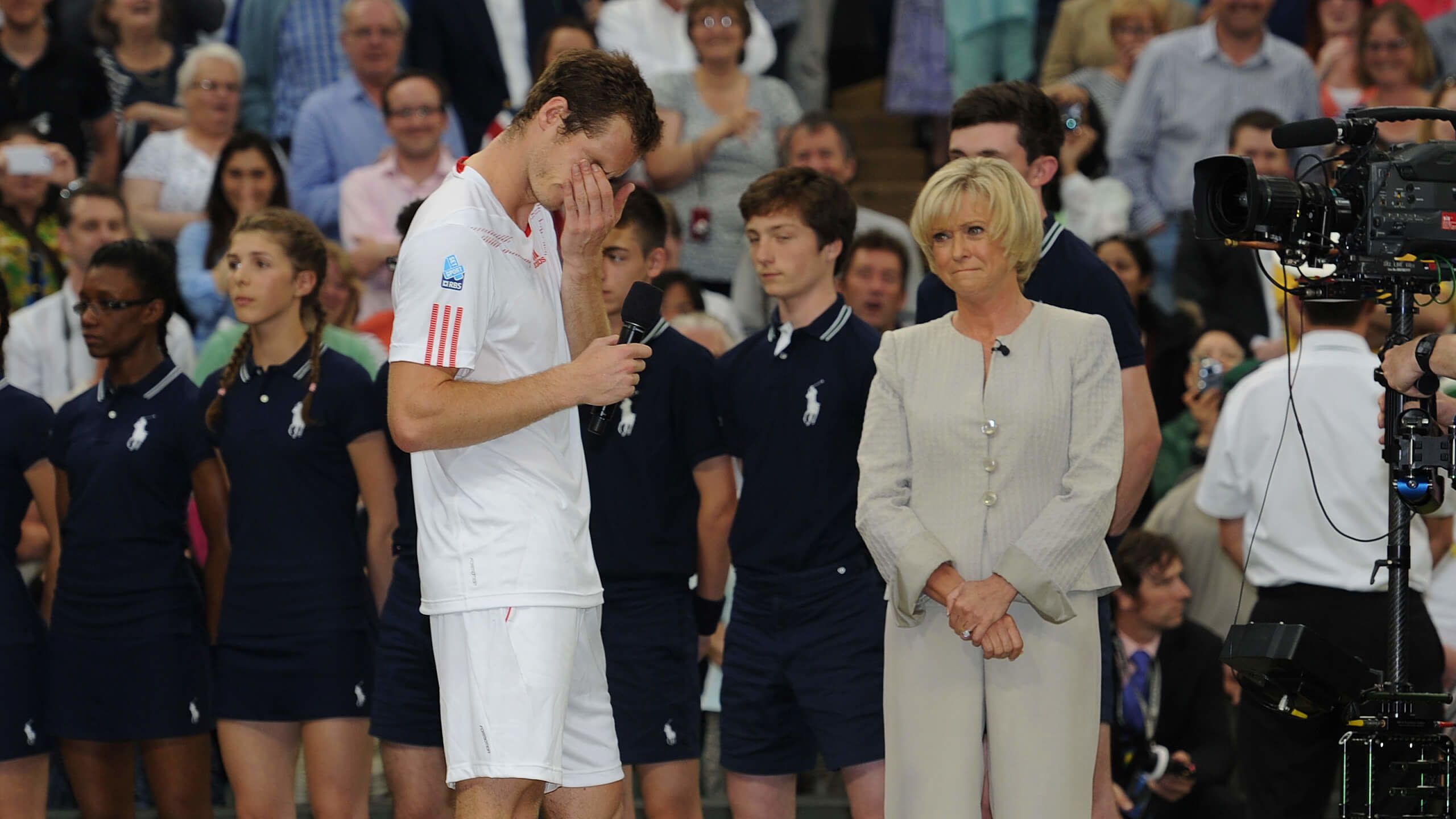Ten years on, the story of Andy Murray’s historic Wimbledon win.
Going to the back of the court to grab a towel before serving for the match was something Andy Murray had done hundreds of times before.
Never, in a triumphant career where he had won his first Grand Slam singles title less than a year previously, had his arm shaken uncontrollably.
From our partners:
This wasn’t just any match. This wasn’t just any final.
Murray was serving for the Wimbledon title.
The 26-year-old was serving for British sporting immortality, trying to end the 77-year wait for a home men’s singles champion, aiming to become the first winner since Fred Perry in 1936.
Championship point.
“When you look down and see your hand shaking, it doesn’t help things,” Murray remembers about trying to close out a straight-set win over Novak Djokovic.
Nervous energy was jolting through the 15,000 spectators on Centre Court, notably Murray’s girlfriend Kim, who watched with her hands covering her mouth, and his parents Judy and Will.
Expressions on instantly recognisable faces – including British Prime Minister David Cameron, Scotland’s First Minister Alex Salmond, England footballer Wayne Rooney, Spice Girl Victoria Beckham, Olympic hero Sir Chris Hoy and tennis legend Rod Laver – provided another visual narrative.
Exhilaration countered by unbearable tension.
The same emotions were felt around the country.
Thousands congregated on Henman Hill, by now rechristened Murray Mound, living every moment as the drama unfolded on the other side of Court One.
Away from the All England Club, millions more were hooked to their television screens, radios, mobiles or laptop computers.
Murray’s journey from a boy growing up in the Scottish town of Dunblane to a man on the brink of national folklore had not been a smooth one.
For years, he had struggled to win over the British public.
“Andy works so hard at what he does and is a real perfectionist, so he shows his frustration and wears his heart on his sleeve,” his mother Judy, who coached him from a young age, says in BBC Radio 5 Live documentary The Day We Won Wimbledon.
“I think those not necessarily in his corner previously were turned when he made them realise it is not easy growing up in the public eye and especially not in an individual sport like tennis.
“Now they could see this young guy who had been trying his heart out for years was close to achieving something incredible.”
Ten years on, BBC Sport revisits the day which turned Murray into a Wimbledon champion, a national treasure, and the recipient of a knighthood.
The Journey

For so long, it had been a tale of near misses and heartbreak for Murray.
The tear-inducing loss to Roger Federer in the 2012 Wimbledon final, where the harsh reality of a fourth successive defeat in a Grand Slam showpiece saw his private emotional turmoil spill into full public view, proved to be the start of a catalytic period.

Less than a month later came the redemptive victory over Federer in the Olympic final on Centre Court, before he finally landed the status which he had long craved at September’s US Open: a major champion.
“It felt like the stars were starting to align,” Dani Vallverdu, who was part of Murray’s coaching team alongside Ivan Lendl, tells BBC Sport.
“2012 was a special year. Winning the US Open took the monkey off his back.
“After reaching the Australian Open final in 2013, he missed that year’s French Open with a back problem and it gave him plenty of time to prepare on the grass.
“It felt like 2013 was the best chance he had to win Wimbledon.”
Murray had known Vallverdu since the pair were teenagers, meeting at the Sanchez-Casal Academy in Barcelona, where the Scot had moved aged 15 in a bid to turn prodigious talent into a professional career.
After Vallverdu realised his playing career was not following the trajectory he had dreamed of, he moved into coaching and joined his childhood friend’s team in 2010.
Never did they talk about Murray’s ambitions of winning Wimbledon. Never was the name Fred Perry mentioned.
“It was the big elephant in the room,” Vallverdu says.
“I’ve known Andy since he was 16 and I don’t think I have ever heard him say ‘I want to win Wimbledon’.
“When I became part of the team it was one of them which was a given. We knew that was the goal. The more you talk about it, the more pressure you have.

“Within the team there was a clear direction – working, discussing, arguing and looking how to improve.
“The goal was to win Grand Slams. If it was Wimbledon, then even better.
“There was enough noise outside of the team to know what the historic value was to winning Wimbledon. We heard and read it every day.
“It was obvious to everyone – the British public and the tennis public – the significance of what Andy was trying to achieve.
“Our job as a team was to play it down, put it to the side and focus on what we needed to do for him to have the best chance to achieve it.”
Read more for the complete story here.
Source: BBC Sports
For enquiries, product placements, sponsorships, and collaborations, connect with us at hello@zedista.com. We'd love to hear from you!
Our humans need coffee too! Your support is highly appreciated, thank you!

